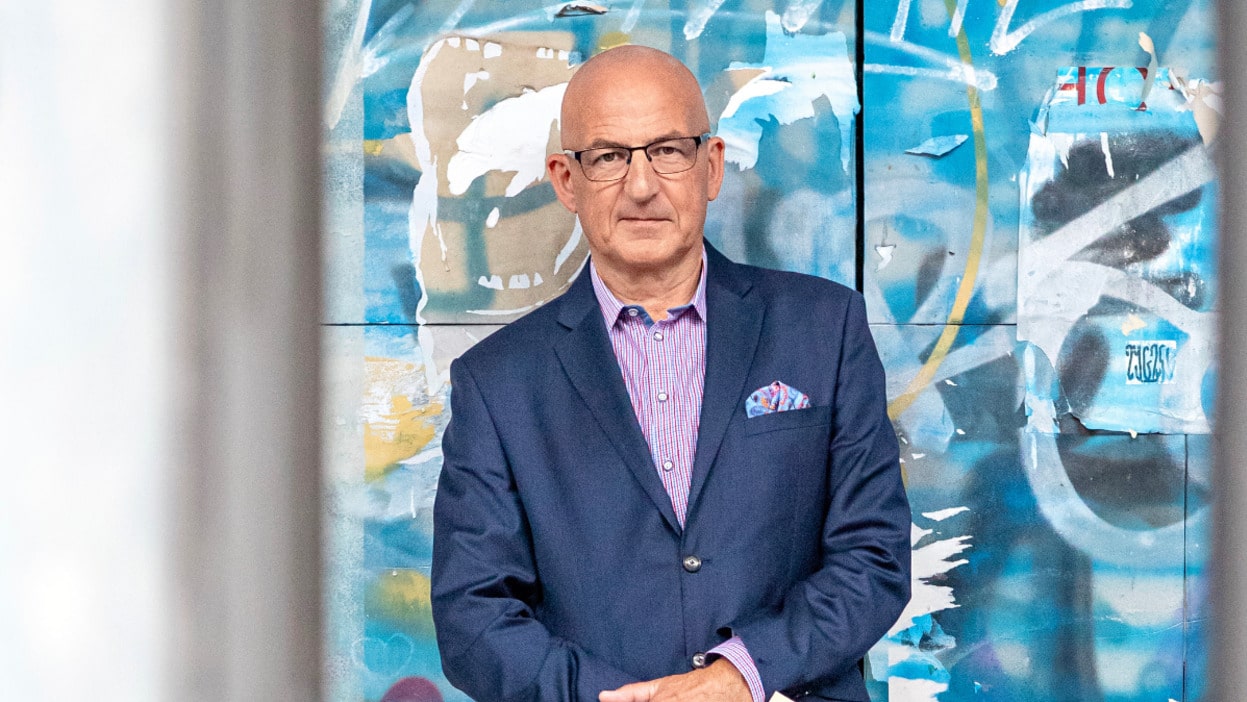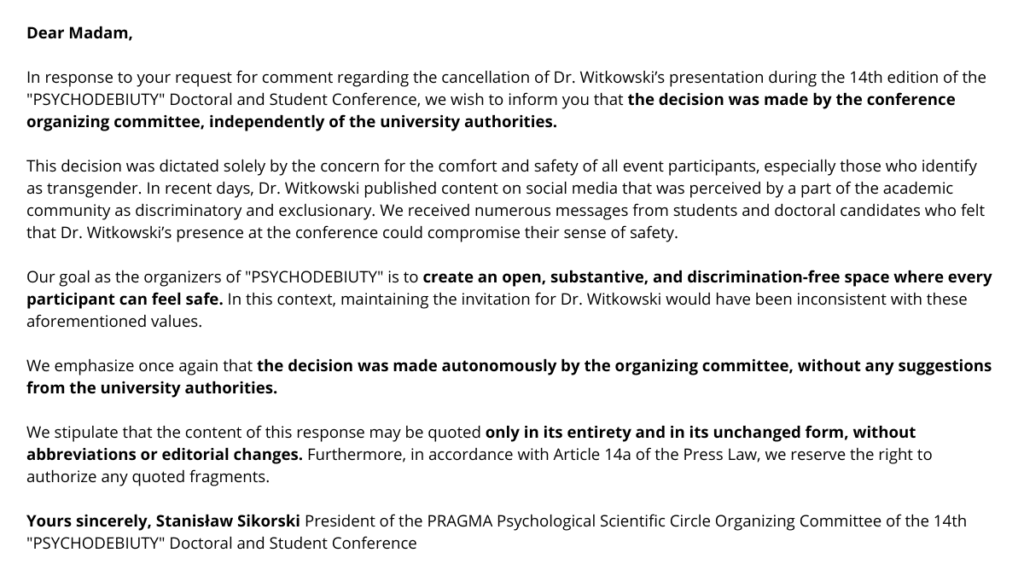Science
The Monk Who Saw the Future: Did an 11th-Century Benedictine Beat Astronomers?
17 February 2026

Is freedom of speech under threat at Poland’s top university? Just one Facebook post was enough for prominent psychologist Dr. Tomasz Witkowski to lose his invitation to the "Psychodebiuty" scientific conference at Jagiellonian University (UJ). Organizers cited alleged "voices from the academic community," but Witkowski claims the move is a clear case of restricting open debate and a worrying sign of rising cancel culture in academia.
Dr. Tomasz Witkowski, a well-known psychologist, initially received an invitation in late August to lecture at the 14th Doctoral and Student Conference “Psychodebiuty.” The event, organized by the PRAGMA Psychological Scientific Circle at Jagiellonian University, will take place on November 21–22, 2025. Dr. Witkowski planned to discuss his specialization: evidence-based psychology.
Dr. Tomasz Witkowski is a Polish scientist and the author of popular science books criticizing pseudoscience, including Forbidden Psychology and Psychotherapy Without Makeup. He’s widely known for his critical stance on psychotherapeutic practices that lack scientific confirmation.
A few days ago, however, the psychologist received an email informing him that his lecture was canceled. Stanisław Sikorski, the main conference coordinator and President of the PRAGMA Scientific Circle, explained in the email that the decision stemmed from “voices from the academic community.” These concerns reportedly arose after Dr. Witkowski made social media posts regarding transgender individuals.
Crucially, Sikorski emphasized that the organizers “admire the psychologist’s scientific achievements” and his “fight against unethical practices,” but they ultimately want the conference to be a “safe space for every student.”
Dr. Witkowski spoke with Holistic News, underscoring that the controversial Facebook posts only linked to scientific articles and research; consequently, they contained no abusive or offensive opinions.
“I merely shared research findings or press publications with a short comment. They remain on Facebook right now. Anyone can check my profile and judge for themselves whether those posts truly attack any group,” he asserted.
Furthermore, he notes that his long-held views on gender identity, which he has openly discussed and published for years, are publicly available. Therefore, he stresses that the conference organizers should have been aware of them. He also pointed out that his social media content had no connection to his planned presentation, which focused exclusively on psychological research methodology.
According to Dr. Witkowski, the organizers’ decision represents an attempt to restrict free expression and exemplifies the growing phenomenon of cancel culture in academia—an exclusionist environment that increasingly infiltrates the scientific community.
Dr. Witkowski believes that certain individuals within the academic environment exert undue influence on others. He formally brought the matter to the Jagiellonian University’s Ombudsman for Academic Values, requesting intervention.
“Thank you very much for reporting this situation. It aligns with a tendency of behaviors I’ve observed, which you rightly diagnose as cancel culture being transposed into the University environment. (…) I will reach out to the organizers for clarification and formulate my further position as appropriate,” replied Dr. Hab. Dobrosława Szumiło-Kulczycka, UJ Professor.
Similar incidents have occurred previously. For example, in 2023, science popularizer Łukasz Sakowski, author of the blog To Tylko Teoria, was removed from the program of the Silesian Science Festival in Katowice. The reason was his social media statements, which some in the community deemed controversial.
Holistic News contacted the “Psychodebiuty” conference organizers for comment. Specifically, we asked if the decision was made independently or in consultation with the university authorities. We published their full response.

This incident at UJ contributes to the broader debate about the limits of free speech in academic settings—a discussion not confined to Poland. Across the globe, in universities in the UK and the United States, similar situations have sparked wide-ranging discourse on where to draw the line between protecting student sensitivities and restricting academic freedom.
Film screenings related to Rowling were canceled following student protests after the author made comments about biological sex. The dispute became a flashpoint in the ongoing battle over freedom of speech.
A Chicago astrophysicist lost his MIT invitation following social media pressure. The incident triggered a nationwide discussion about ideological pressures.
A philosopher left the University of Sussex following student protests. In 2025, the university received a record fine for failing to protect academic freedom.
Cambridge withdrew its invitation to [Jordan] Peterson following media criticism. Years later, however, the university once again opened the doors to debate.
Protesting students shut down the speech by the author of The Bell Curve. During the ensuing unrest, Professor Allison Stanger was injured.
Organizers cited the need for a ‘safe space.’ The case sparked a debate on the limits of academic freedom in Poland.
Critics warn of the so-called “chilling effect.” Decisions made in the name of creating “safe spaces” could ultimately discourage young researchers from pursuing controversial, difficult, yet important topics. This can happen even when their statements are based on solid scientific research. In practice, this results in self-censorship, avoidance of contentious subjects, and the limitation of debate—which, after all, forms the very foundation of scientific development and growth. The growing trend of cancel culture in academia must be carefully scrutinized.
Read this article in Polish: Wolność słowa? Psycholog dr Witkowski usunięty z konferencji na UJ
Science
17 February 2026



Zmień tryb na ciemny